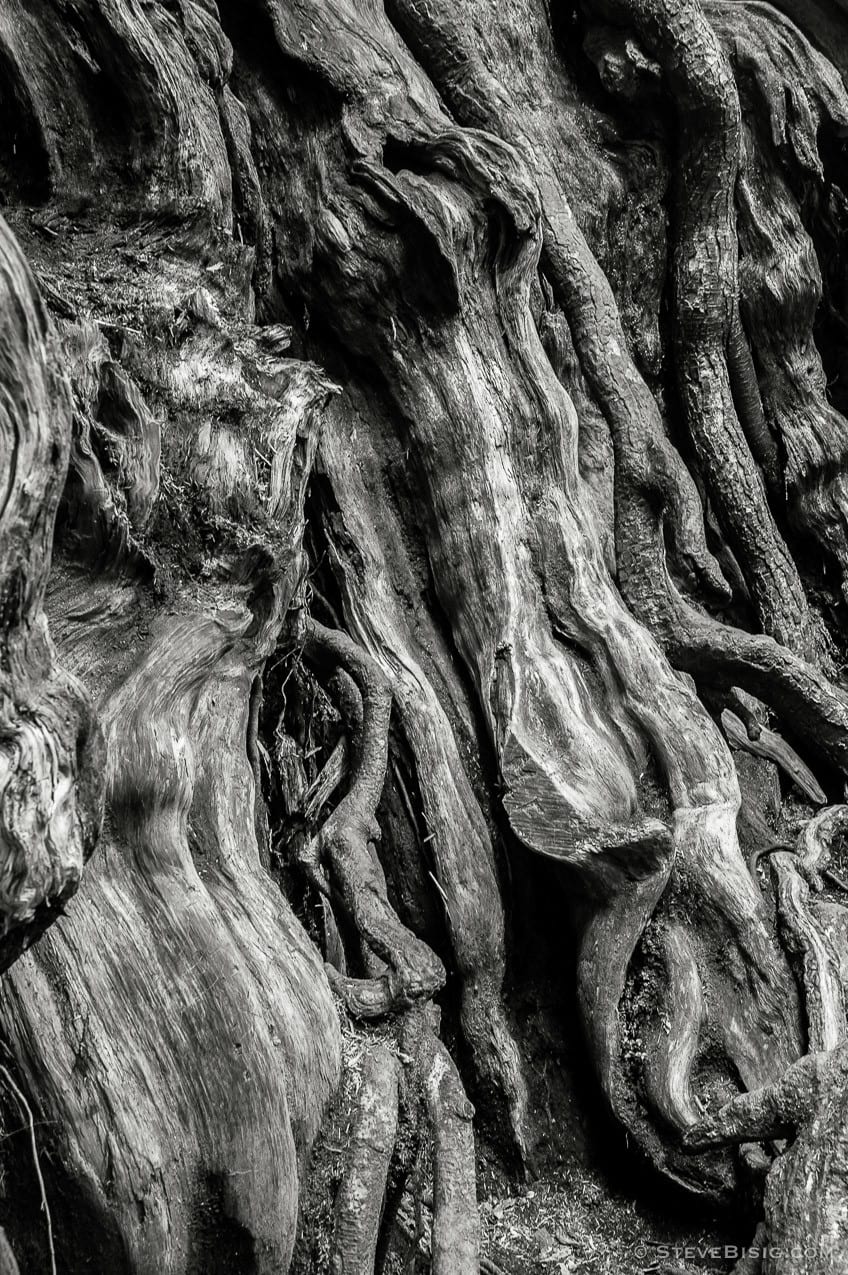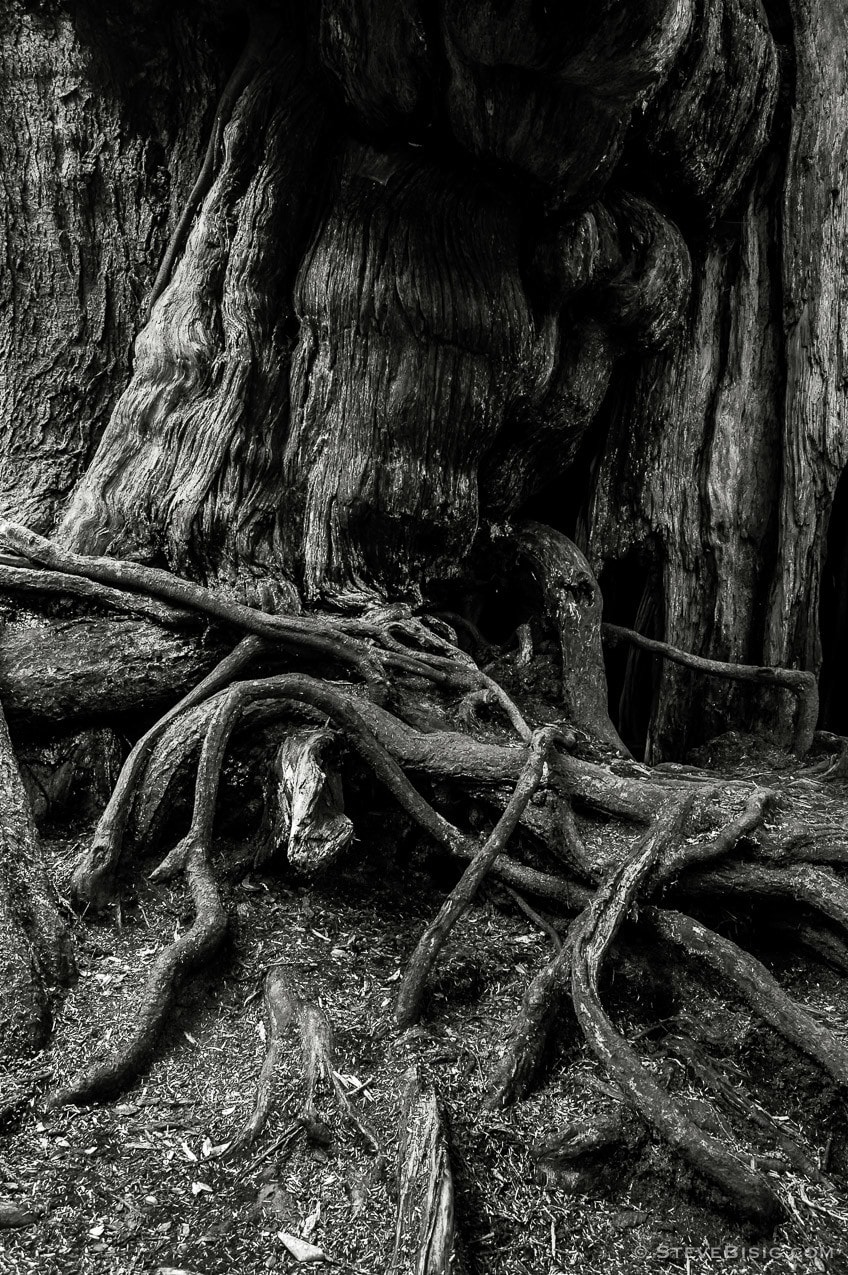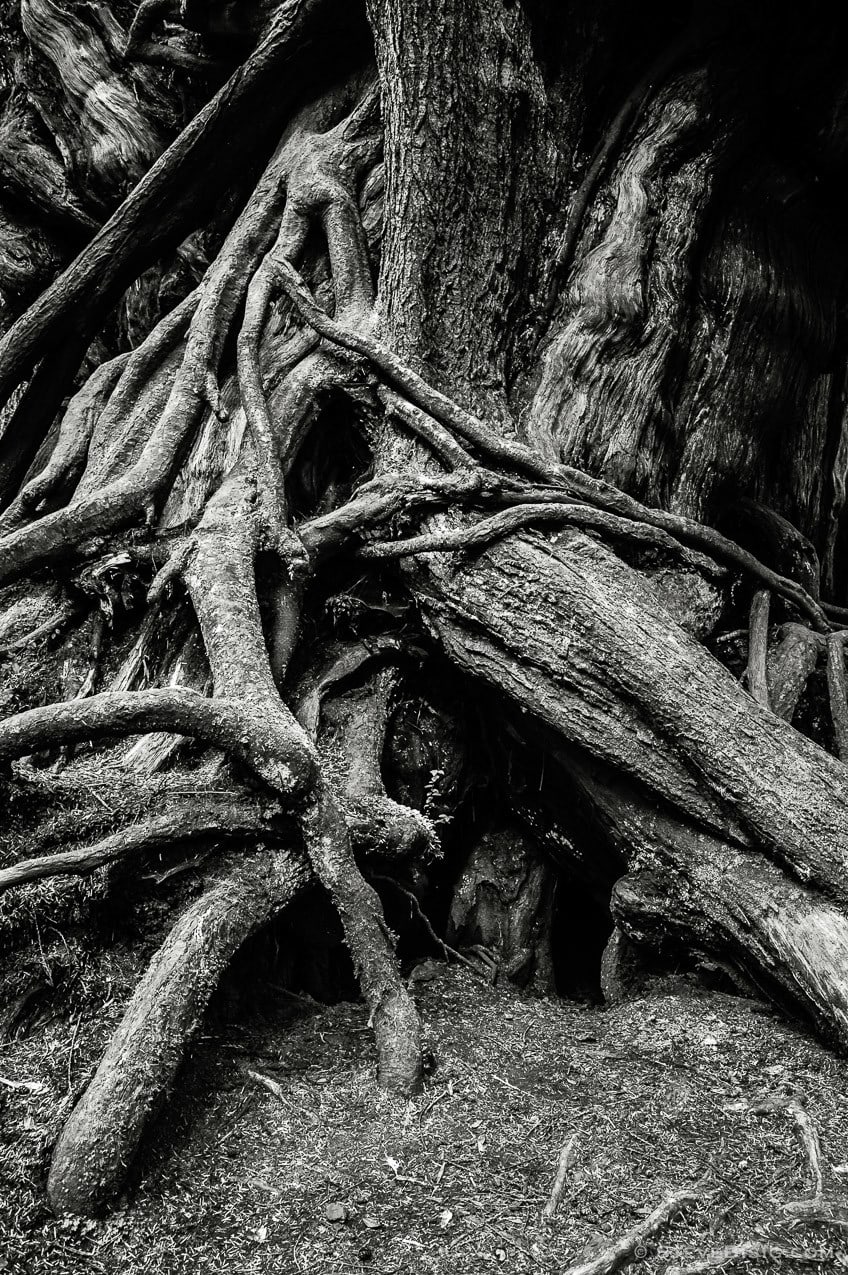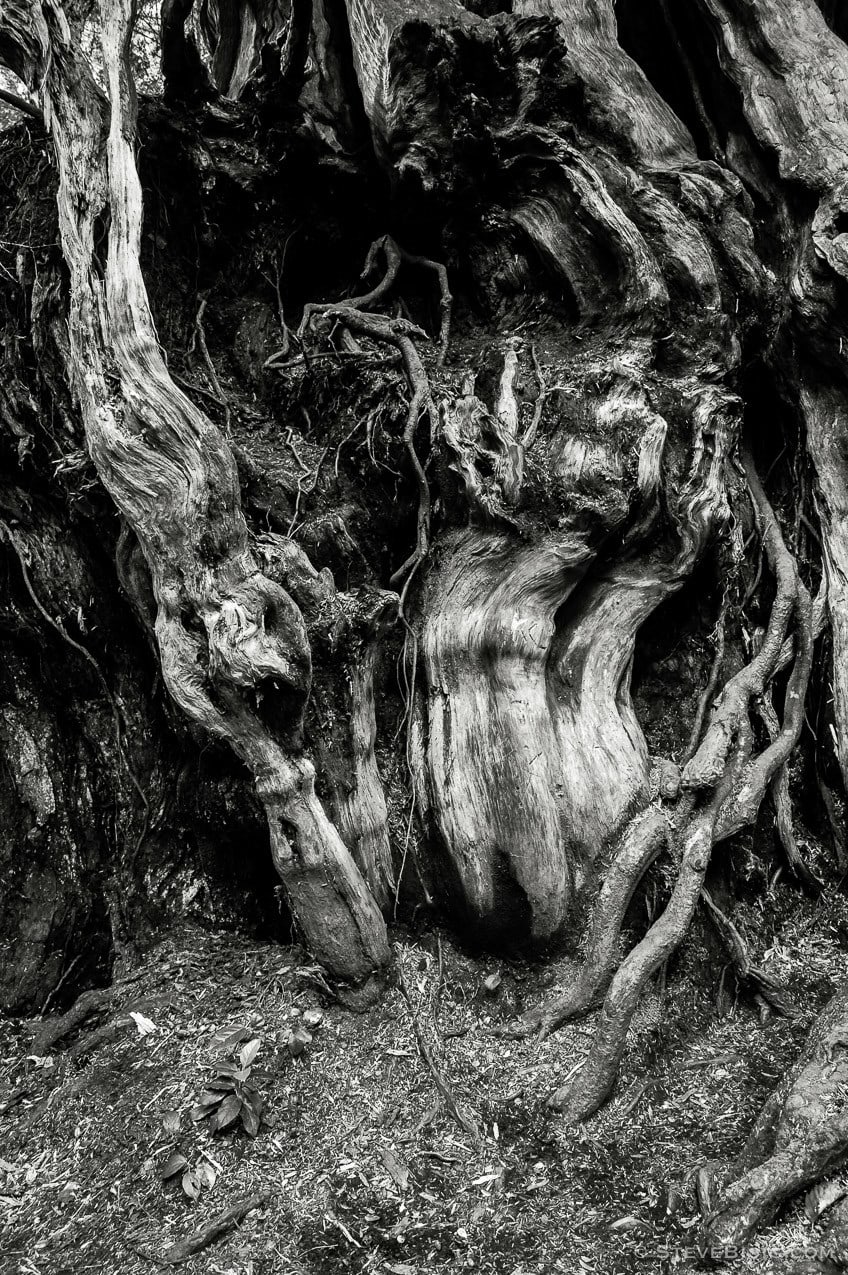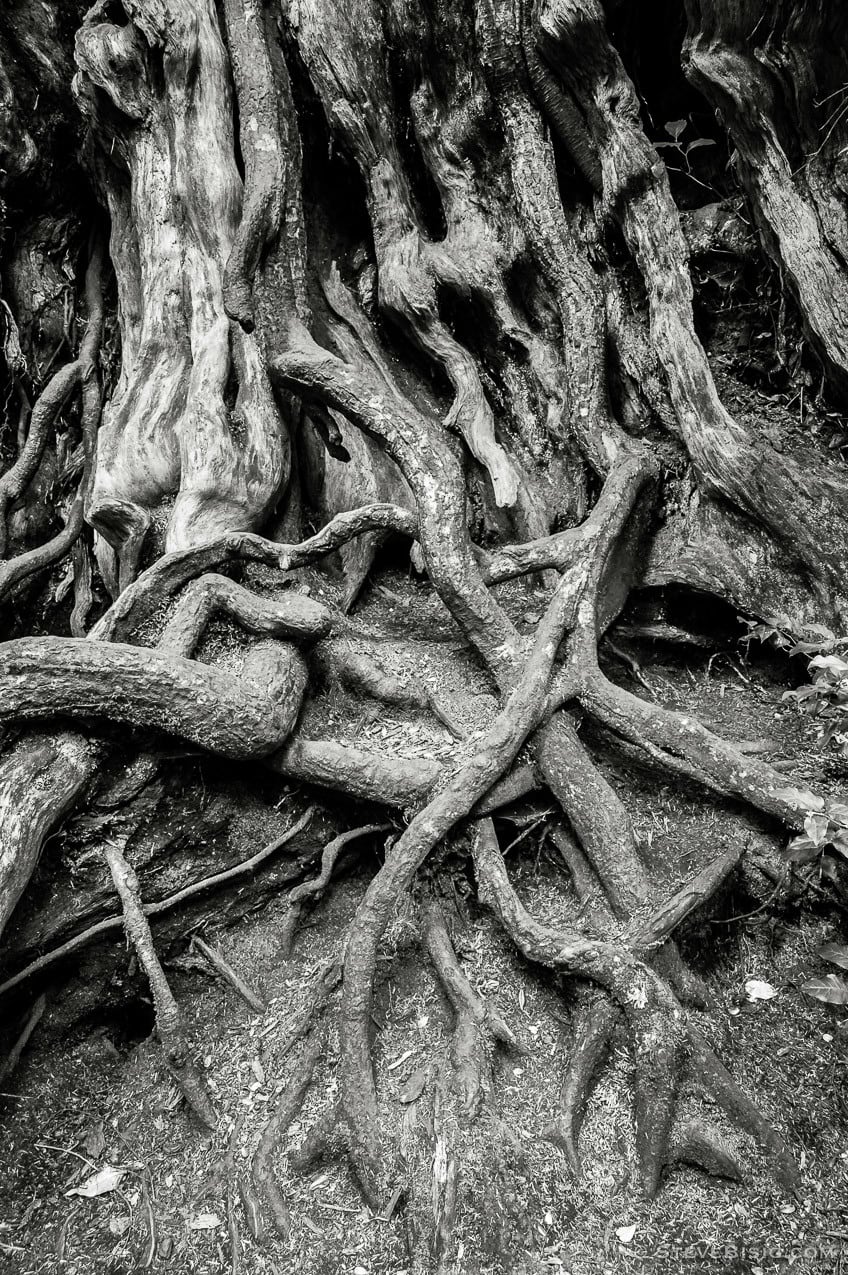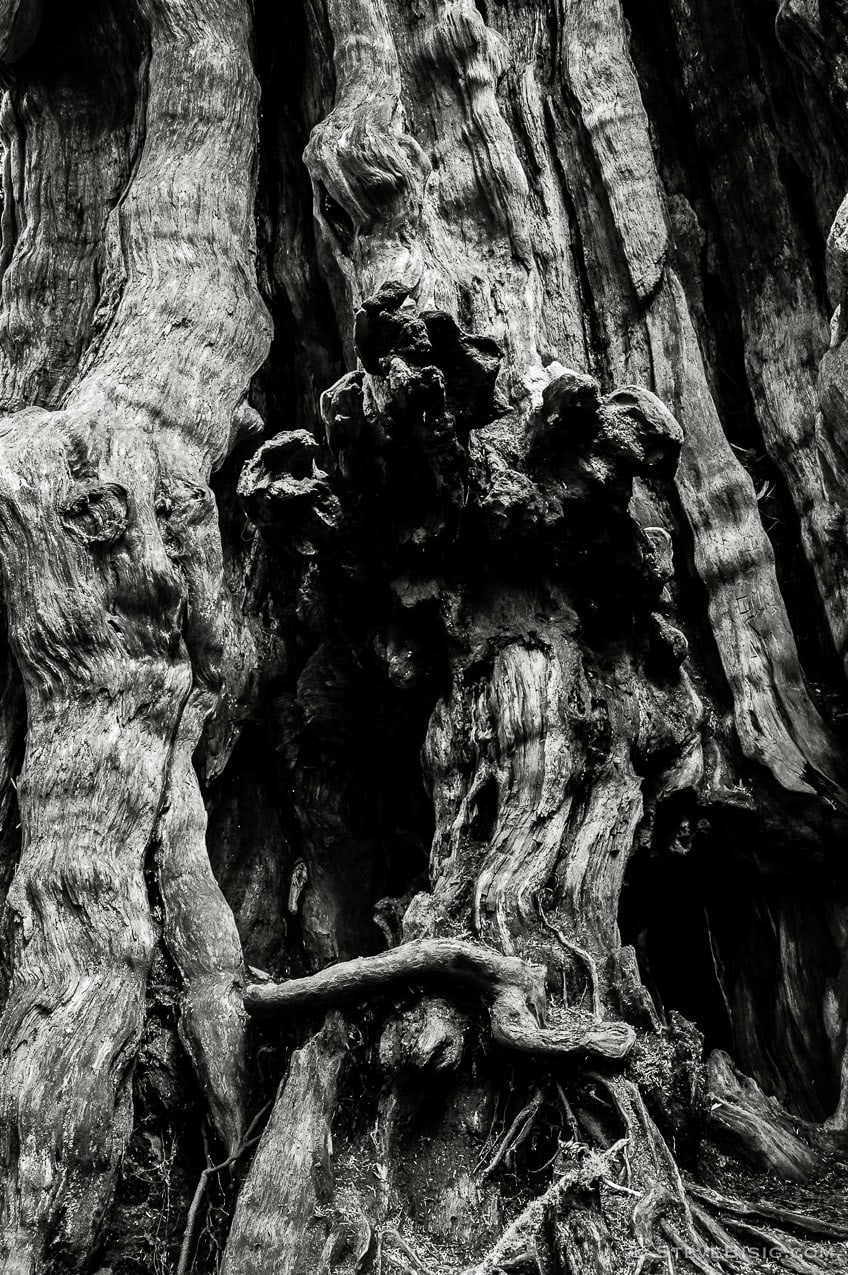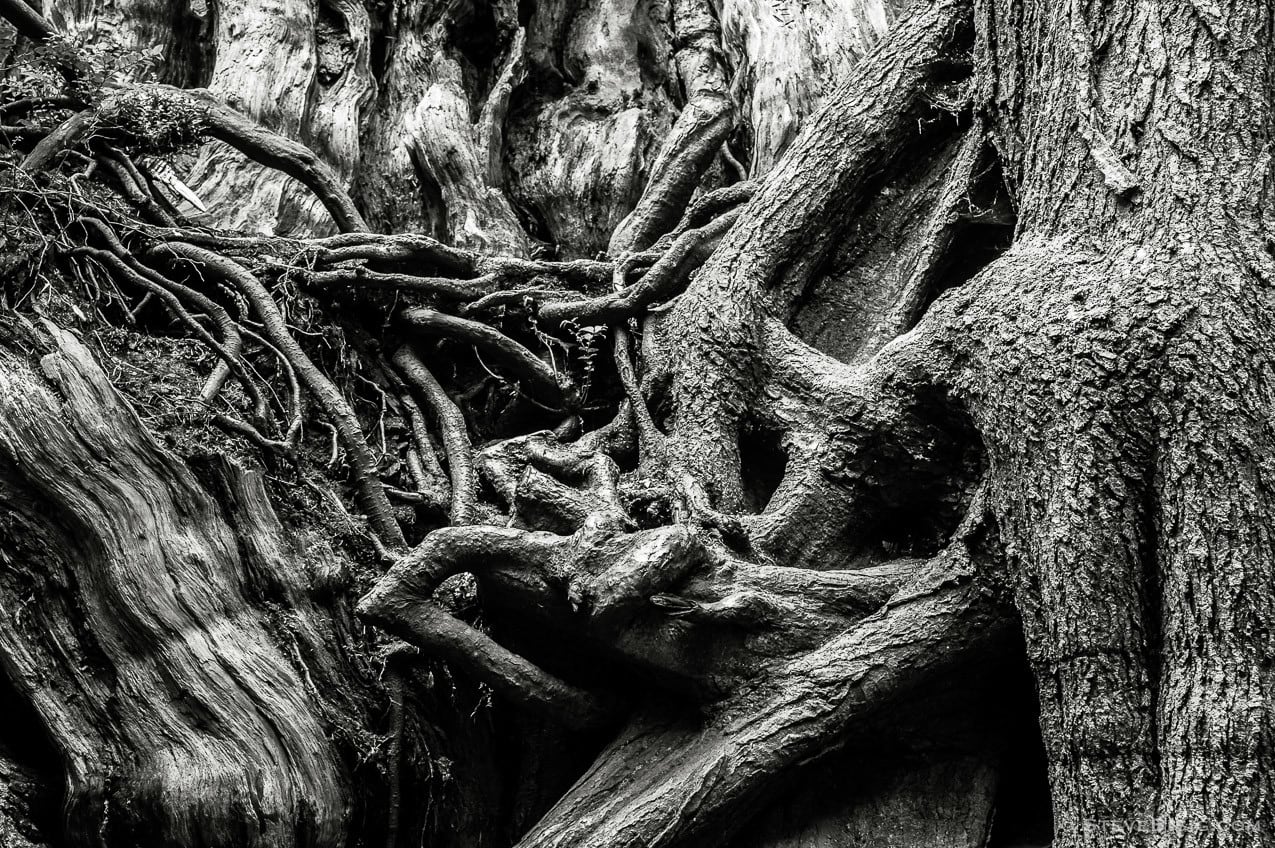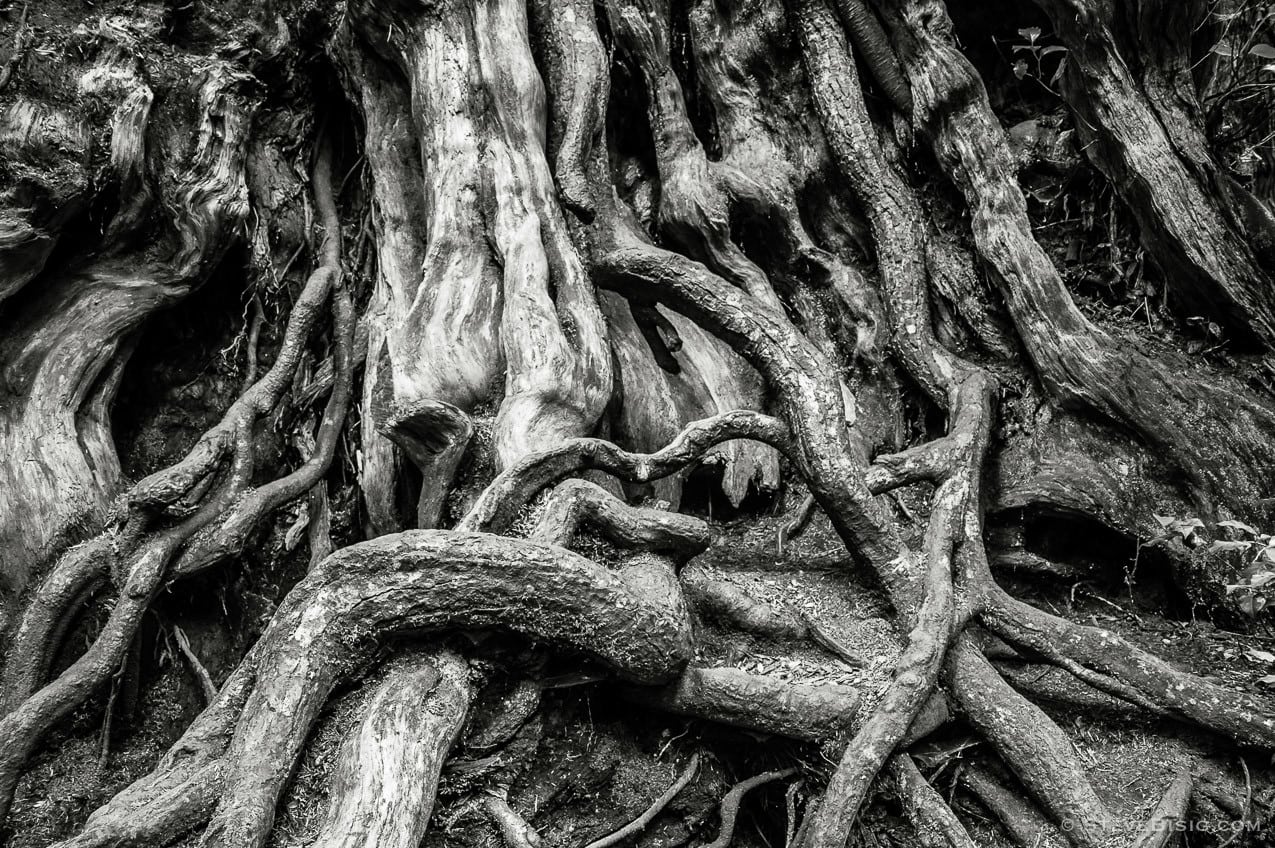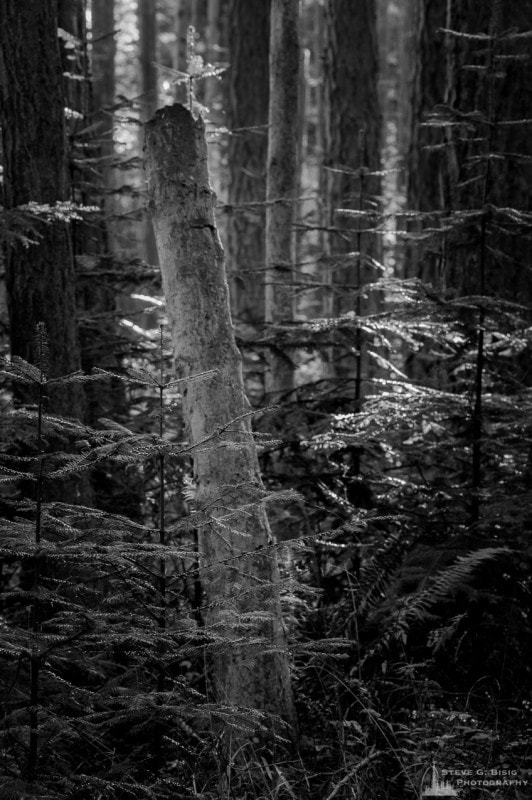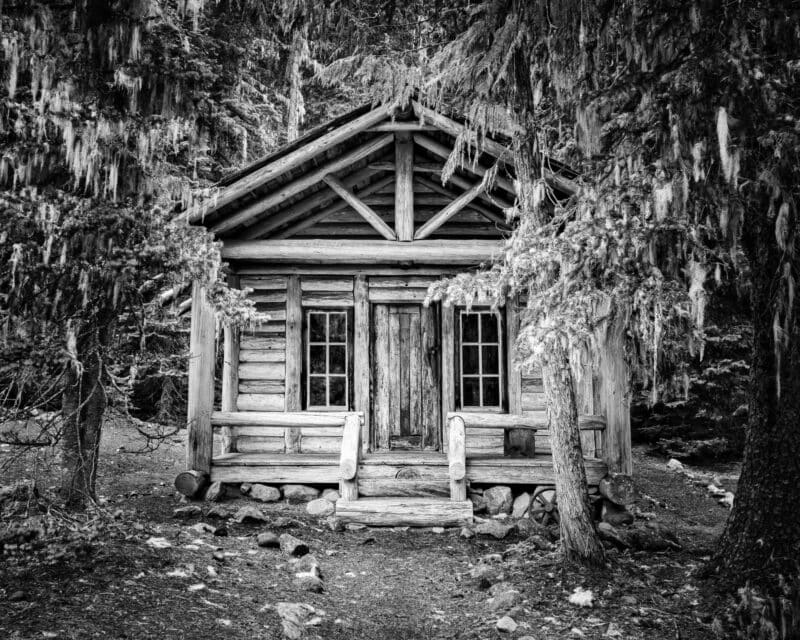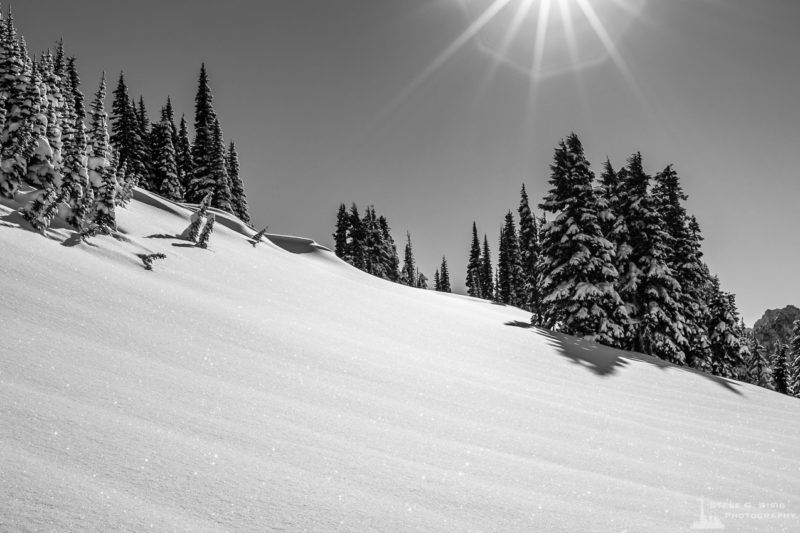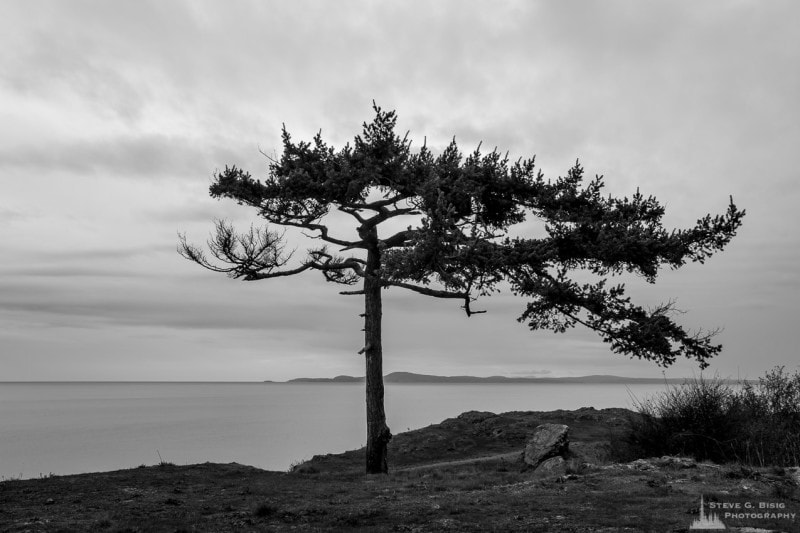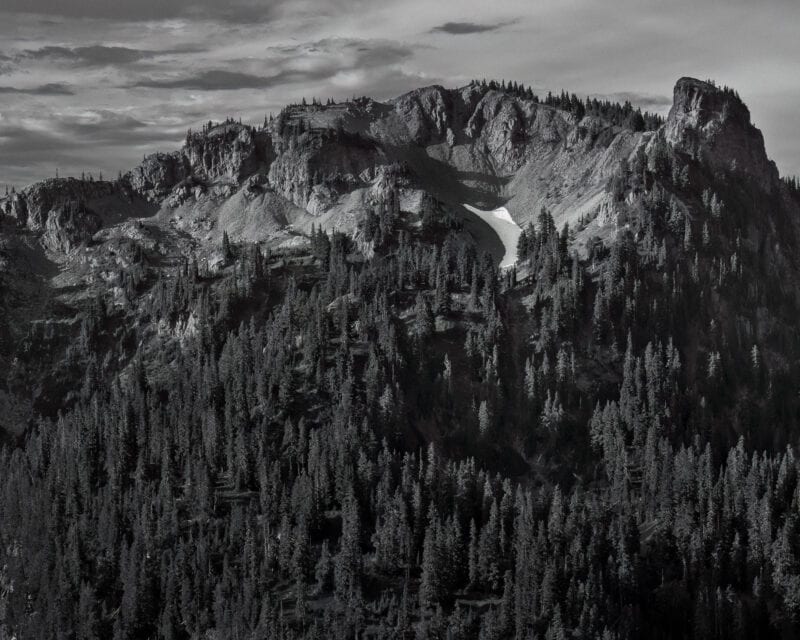The Soul of the Kalaloch Big Cedar: Intimate Portraits in Black and White
In 2013, I started a black and white photography project that altered my perspective. Within Washington State’s Olympic National Park stands the legendary Kalaloch Big Cedar. Its presence exudes a sense of history far more profound than my lifetime. While most visitors gazed upward at its towering height, I found myself drawn to its massive trunk’s sprawling root system and weathered contours. Here, raw, undeniable beauty laid bare centuries of quiet existence, not hinted at.
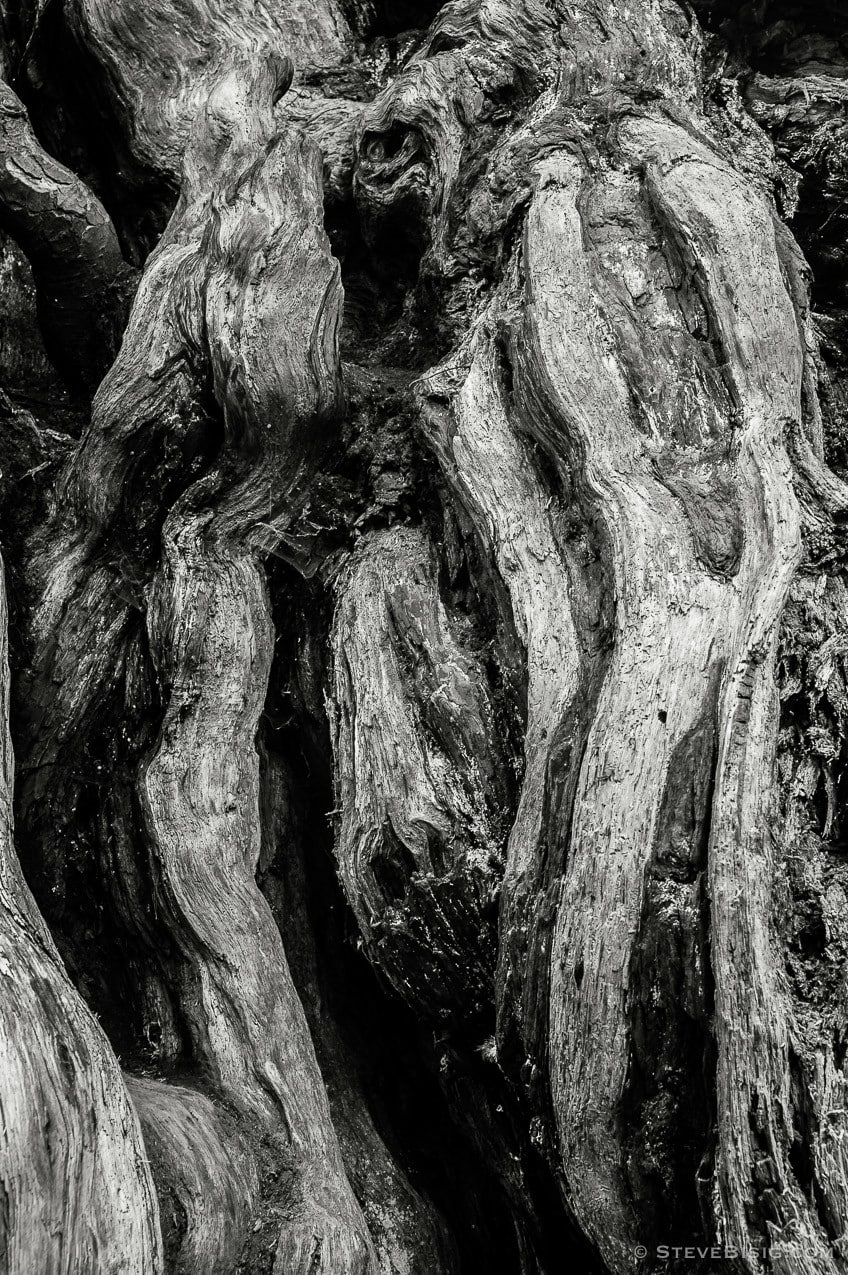
Whispers of a Timeless Past
The very air around this monumental tree seemed laden with timeless mystery. As my camera became a lens into the cedar’s ancient soul, I felt compelled to strip away the distractions of color with black and white photography. Exquisite textures and patterns emerged. The tireless forces of rain, wind, and quiet perseverance etched each line and curve.
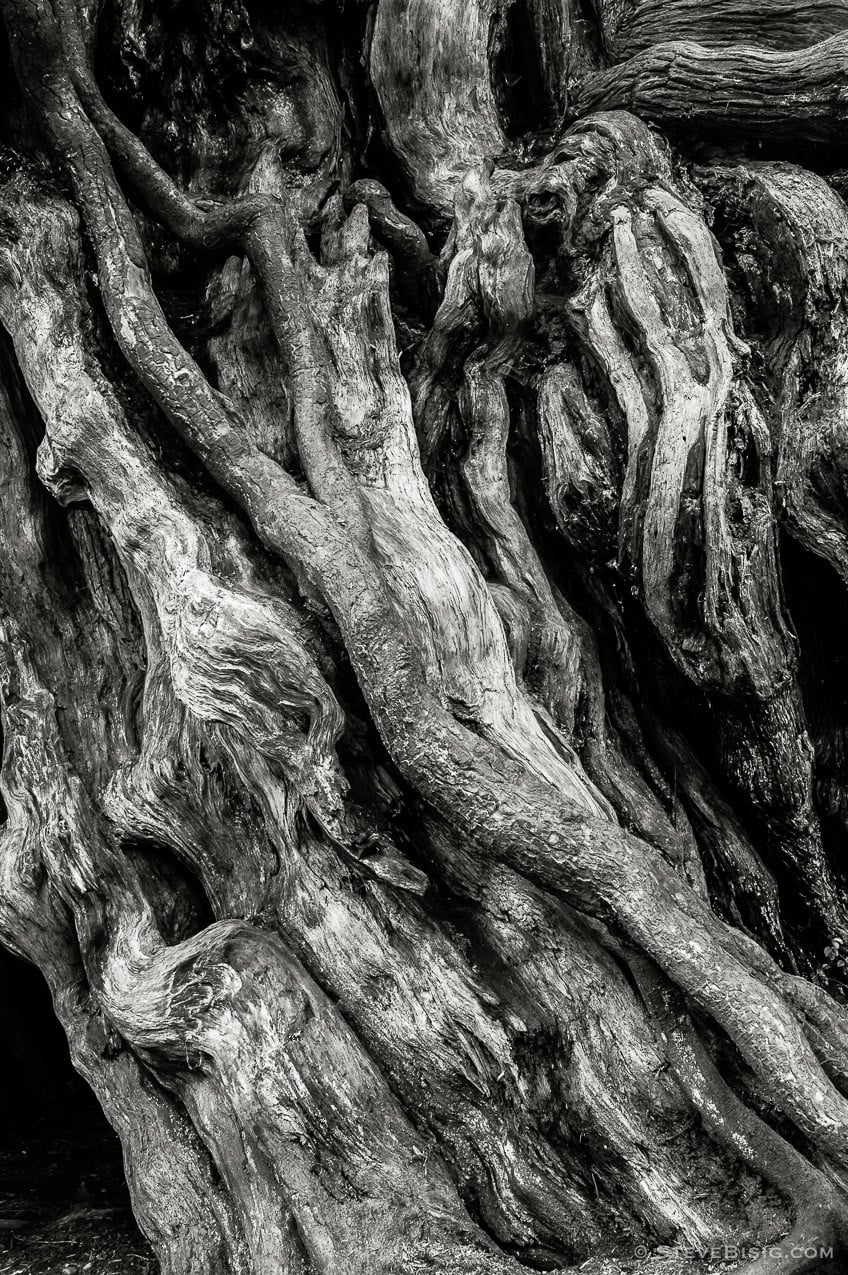
Like mythical creatures burrowing into the earth, the roots stretched and twisted. Their forms hint at unseen depths and an unseen struggle for sustenance. The tree trunk appeared as if it had been carved by time, towering above the tangled lifeline. Each deep furrow whispered wordless stories, a silent history written in the weathered tapestry of its bark. This tree, I realized, was more than an awe-inspiring giant – it was a living embodiment of the forest’s enduring spirit.
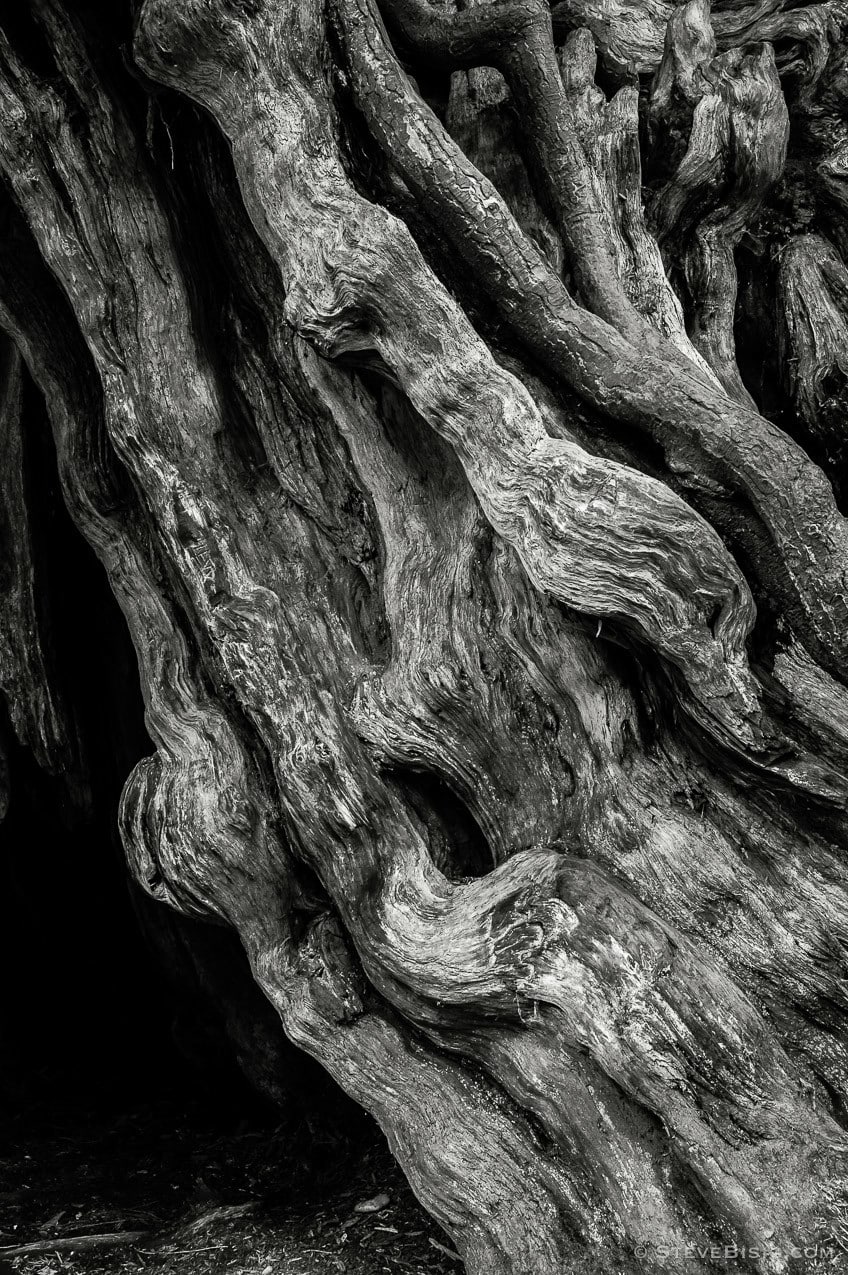
Indigenous Legacy on the Olympic Peninsula
It is believed that the Kalaloch Big Cedar sprouted around the year 1200, a time when empires rose and fell on distant continents. In this corner of the Pacific Northwest, life revolved around the rhythms of the land and sea. For millennia, Indigenous tribes like the Quinault and Hoh lived in harmony with these coastal rainforests. They were drawing sustenance and cultural meaning from ancient giants like this cedar. To them, trees were not mere resources but respected elders imbued with spirit and wisdom.
Resilience in the Face of Change
My black and white photography project became a journey into natural and human history. In the scars etched into the Big Cedar’s bark, I saw echoes of a landscape transformed. For a time, the relentless pace of logging threatened the future of these old-growth forests. Yet, in 1938, the establishment of the Olympic National Park was a testament to the growing movement to protect what remained of America’s wilderness heritage. Somehow, despite the forces conspiring against it, the Kalaloch Big Cedar was spared.
This spirit of resilience was at the heart of the images I captured. Yes, they showcase the intricate details of the roots – that vital lifeline clinging to the coastal earth. And yes, the textured bark reveals a complex past of triumph and adversity in the face of the elements. But more than that, these are intimate portraits of an enduring presence steeped in the raw power of nature’s relentless will to survive.
When Nature Intervenes
In March 2014, a powerful storm lashed the coast, forever altering the Big Cedar. Mighty branches cracked, and a massive portion of the trunk split away, the echoes of its fall reverberating through the forest. It was a sobering reminder that even the most steadfast giants are not immune to the whims of change. In its ravaged state, the tree became even more interesting, its vulnerability mirrored in the ragged edges of its storm-torn form.
Lessons for the Future
These images spark not only awe but also a deep respect for the fragile balance of our world. They ask us to slow down, to see the subtle details in the grand tapestry of life. The Kalaloch Big Cedar, wounded but defiant, is a living testament to time’s passage and the importance of safeguarding our wild places. While my black and white photographs can only capture a brief snapshot of its long history, they may ignite a spark within others. I hope to inspire others to connect with our ancient forests’ enduring, awe-inspiring spirits.
Bringing the Forest Home
If the stark beauty of these photographs resonated with you, I invite you to bring a piece of the Olympic Peninsula’s magic into your own space. These images of the Kalaloch Big Cedar are available as fine art black and white prints. For more information, click on the image or accompanying link.
My passion for black and white landscape photography extends far beyond this single tree. If you’re drawn to the timeless landscapes of the Pacific Northwest and beyond, I encourage you to explore more of my work at https://www.stevebisigphotography.com.
Let’s keep the connection to nature alive!

